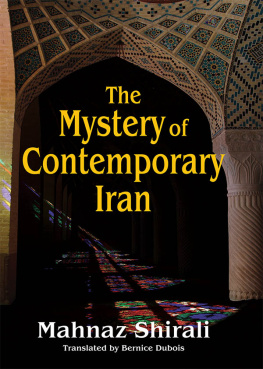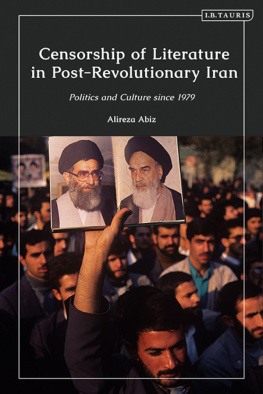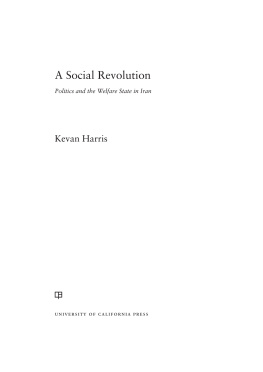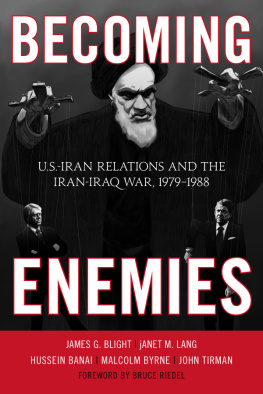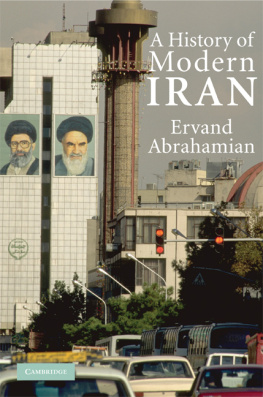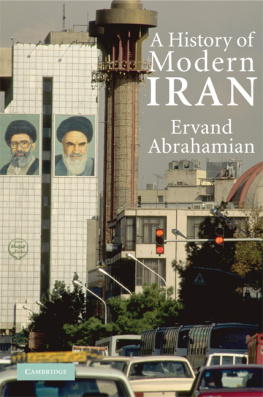Contents
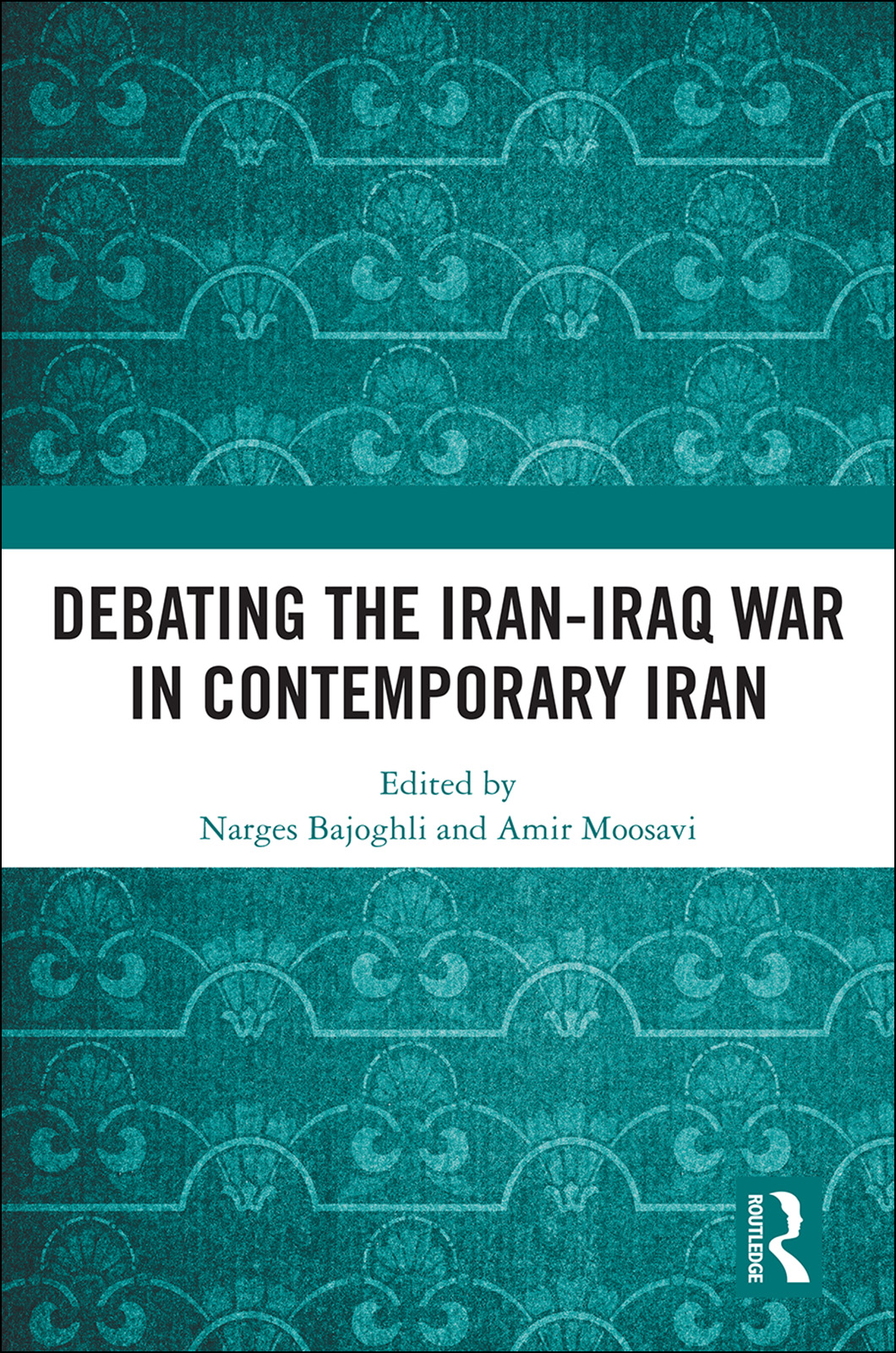
Debating the Iran-Iraq War in Contemporary Iran
The Iran-Iraq War (19801988) is a cornerstone of the Islamic Republic of Irans existence. It entrenched the newly established regime and provided the means for its consolidation of power in the country following the 1979 Revolution. Officially recognized as the War of Sacred Defense, the Iranian government has been careful to control public discourse and cultural representation concerning the war since wartime. Nearly 30 years since the wars end, however, debates around the war and its aftermath are still very much alive in Iran today. This volume uncovers what some of those debates mean, nearly 30 years since the wars end.
The chapters in this volume take a fresh look at the far-reaching legacies of the Iran-Iraq War in Iran today a war that dominated the first decade of the Islamic Republics existence. The chapters examine the political, social and cultural ramifications of the war and the wide range of debates that surround it.
The chapters in this book were originally published in Middle East Critique .
Narges Bajoghli is Assistant Professor of Middle East Studies at the School of Advanced International Studies, Johns Hopkins University in Washington, D.C., USA. She received her PhD in Sociocultural Anthropology from New York University. Her research focuses on pro-regime cultural producers in Iran, and is based on ethnographic research with Basij, Ansar-e Hezbollah and Revolutionary Guard media producers in Iran.
Amir Moosavi is Assistant Professor of Comparative Literature at Rutgers University in Newark, USA. He received his PhD in Middle Eastern and Islamic Studies from New York University in 2016. He then completed a postdoctoral fellowship with the Europe in the Middle East the Middle East in Europe (EUME) program Berlin and a visiting assistant professorship in modern Iranian studies at Brown University. His research and teaching interests include modern Persian and Arabic literatures, war and cultural production and comparative cultural studies of the modern Middle East.
First published 2018
by Routledge
2 Park Square, Milton Park, Abingdon, Oxon, OX14 4RN, UK
and by Routledge
711 Third Avenue, New York, NY 10017, USA
Routledge is an imprint of the Taylor & Francis Group, an informa business
2018 Editors of Middle East Critique.
All rights reserved. No part of this book may be reprinted or reproduced or utilised in any form or by any electronic, mechanical, or other means, now known or hereafter invented, including photocopying and recording, or in any information storage or retrieval system, without permission in writing from the publishers.
Trademark notice: Product or corporate names may be trademarks or registered trademarks, and are used only for identification and explanation without intent to infringe.
British Library Cataloguing-in-Publication Data
A catalogue record for this book is available from the British Library
ISBN13: 978-1-138-48502-0
Typeset in Times New Roman
by codeMantra
Publishers Note
The publisher accepts responsibility for any inconsistencies that may have arisen during the conversion of this book from journal articles to book chapters, namely the possible inclusion of journal terminology.
Disclaimer
Every effort has been made to contact copyright holders for their permission to reprint material in this book. The publishers would be grateful to hear from any copyright holder who is not here acknowledged and will undertake to rectify any errors or omissions in future editions of this book.
The chapters in this book were originally published in Middle East Critique (2017) and Critique: Critical Middle Eastern Studies (2007). When citing this material, please use the original page numbering for each article, as follows:
Battling Truths: The Legacy of the Iran-Iraq War in the Islamic Republic of Iran
Narges Bajoghli and Amir Moosavi
Middle East Critique, volume 26, issue 1 (2017) pp. 34
War and Resentment: Critical Reflections on the Legacies of the Iran-Iraq War
Kaveh Ehsani
Middle East Critique, volume 26, issue 1 (2017) pp. 524
Development, Mobilization and War: The Iranian Construction Jehad, Construction Mobilization and Trench Builders Association (19792013)
Eric Lob
Middle East Critique, volume 26, issue 1 (2017) pp. 2544
Dark Corners and the Limits of Ahmad Dehqans War Front Fiction
Amir Moosavi
Middle East Critique, volume 26, issue 1 (2017) pp. 4559
The Outcasts: The Start of New Entertainment in Pro-Regime Filmmaking in the Islamic Republic of Iran
Narges Bajoghli
Middle East Critique, volume 26, issue 1 (2017) pp. 6177
Inventions of the Iran Iraq War
Arshin Adib-Moghaddam
Critique: Critical Middle Eastern Studies, volume 16, issue 1 (2007) pp. 6383
For any permission-related enquiries please visit: http://www.tandfonline.com/page/help/permissions
Arshin Adib-Moghaddam is Professor in Global Thought and Comparative Philosophies and Chair of the Centre for Iranian Studies at the London Middle East Institute, London, UK. He is also Senior Associate Fellow of CEI-IUL, Lisboa, Portugal.
Narges Bajoghli is Assistant Professor of Middle East Studies at the School of Advanced International Studies, Johns Hopkins University in Washington, D.C., USA.
Kaveh Ehsani is Assistant Professor of International Studies and Director of Graduate Studies at DePaul University, Chicago, USA.
Eric Hooglund is Editor of Middle East Critique.
Eric Lob is Assistant Professor in the Department of Politics and International Relations, Florida International University, Miami, USA.
Amir Moosavi is Assistant Professor of Comparative Literature at Rutgers University in Newark, USA.
Debates around the war with Iraq (19801988) and its aftermath are very much alive in Iran today. What do these debates mean nearly 30 years since the wars end? A cornerstone of its existence, the Iran-Iraq War entrenched the newly established Islamic Republic and provided the means for its consolidation of power in the country. Officially recognized as the War of Sacred Defense (defa-ye moqaddas), the Iranian governments narrative of the war has been one framed by the martyrdom of the third Shii Muslim Imam, Husayn, at Karbala: A war of righteous victimhood led by selfless heroes and martyrs.
Since wartime, cultural producers from various political and social positions have been at the forefront of debates about defining and representing the war for the majority of Iranians, who are now too young to remember the conflict, as 70 percent of the population is under the age of 35. While much state-sponsored cultural production continues to promote a version of the wartime narrative, some pro-regime cultural producers and intellectuals, many of them veterans, advocate for more dynamic understandings of the war. These actors seek to move away from the propaganda efforts of the 1980s and to create more critical understandings of this formative period in the regimes history. Of course, voices of opposition to the ways in which the war was carried out and its aftermath have grown since its conclusion in 1988 and continue to play a large role in the political landscape of the Islamic Republic.


